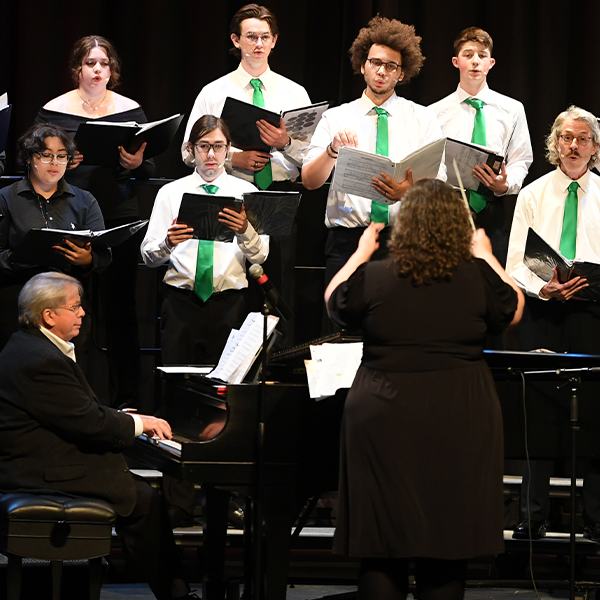
Admission Requirements
Applications are accepted annually in the fall semester (deadline November 15).
Candidates enroll in the ANES 1001 (Intro) class during the spring semester, and a new ANES cohort begins core coursework each year during the summer semester.
Applicants to the Anesthesia Technology Program shall fulfill special admission requirements as follows:
- Meet all college general requirements for admission as a degree-seeking student as stated in the catalog and be admitted to the college.
- Review “programs with Special Admissions Requirements” in the current college catalog.
- Completion of all required learning support course work no later than the end of fall semester prior to the year in which admission is sought.
- ACT or SAT exam results are required of all applicants. Applicants must have a composite score of 19 or higher (equivalent to an SAT score of 900 or higher) or have demonstrated proficiency in math, reading, and writing through successful completion of required learning support or general education courses.
- Have earned a cumulative grade point average (GPA) of 2.5 or above on a 4.0 scale for academic subjects. The high school GPA is used for students who have earned less than 12 college credit hours. An applicant who has not earned 12 credit hours of college level credit that has no high school GPA must have an average standard score of at least 530 on the high school equivalency examination.
- Program application requirements listed above must be completed before February 15. This includes the two Letter of Recommendation forms provided at the preliminary interview and review of the Anesthesia Technology Applicant Handbook. The handbook contains the Anesthesia Technology Student Policy Manual, a copy of the Practice Standards adopted by the ASATT, the ASATT’s Standards of Ethics, and an estimated cost sheet. Late applications may be accepted if space is available in the class.
- Applicants must be able to physically manipulate and operate equipment, manipulate patients, and visually assess patient monitoring devices and the working environment. They must be able to clearly communicate, both verbally and in writing, make appropriate judgment decisions in emergency or other situations, and demonstrate emotional stability and psychological health in day-to-day interaction with patients, their family members, and hospital personnel.
- In compliance with the Americans with Disabilities Act, students are encouraged to register with the office of Counseling/Disability Services for assistance with requests for reasonable accommodations that may be warranted. It is the student’s responsibility to voluntarily and confidentially provide appropriate documentation regarding the nature and extent of a disability. Students requesting accommodations must contact the office of Counseling/Disability Services at 931.540.2857 at the beginning of the semester.
- College credit for Human Anatomy & Physiology I & II and Math courses must be current within the past five (5) years to count toward the Anesthesia Technology degree or the course(s) must be repeated. A student enrolled in one or more of these courses concurrent with the ANES 1001 (Introduction to Anesthesia Technology) during the spring semester when the program application is submitted may be offered program admission contingent upon completion of course(s) with a grade of “C” or higher.
Completion of the items listed above denotes consideration for program admission but in no way implies or guarantees an interview or admission to the program.
- The program director shall promptly notify applicants of the offer of admission to the program. In addition, applicants who have not been accepted shall be notified and provided information regarding the option to re-apply at a future time. The program director shall offer counseling regarding additional preparation which may be helpful to increase the chance of qualifying for future consideration. The program director shall in no way imply that a student will be ensured of acceptance, only that further preparation might improve the chance of acceptance. The program director shall also offer counseling regarding other career options and/or refer students to the Columbia State Community College career counselor.
- Once admitted, students are required to submit documentation of the following clinical access requirements by the deadline announced prior to clinical assignment. If the documentation is not completed on time, students will not be permitted to go to clinic, may be unable to complete required clinical competencies, and may be required to withdraw from the program.
-
- Health Requirements: All anesthesia technology students must submit evidence of good health by returning a completed Physical Examination form. Forms are given to the student upon acceptance to the program. All students must have a:
-
-
- Documented negative two-part TB skin test and/or chest x-ray yearly. TB skin tests must be within three months of the start of clinic.
- Evidence of immunity for:
-
Rubella (positive titer)
Mumps Titer
Varicella Zoster (chicken pox) (positive titer)
Rubeola titer (positive titer)
Tetanus/diphtheria booster within the past ten years
Hepatitis B vaccine
-
- Basic Cardiac Life Support (BCLS) Requirements: All students must submit evidence of current BCLS certification (must include one and two-person CPR for adult, child and infant) as well as AED (Automatic Electronic Defibrillator) and must include on-ground/live competency components (100% online is not acceptable). BCLS certification classes are offered by Columbia State Community College, healthcare organizations, or the American Heart Association. Certification must be maintained continuously for the duration of enrollment and enrolled students must provide an updated copy of the BCLS (or higher) card to the school in a timely manner.
- ACLS will be taken during the course of the program.
- Malpractice insurance is required for all anesthesia technology clinical practicum courses. A group policy is provided. The fee is assessed annually as a part of the registration fees.
- A Dosimeter radiation monitor is required for all anesthesia technology clinical practicum courses. The fee is assessed as a part of registration fees.
- Health insurance is required. Students must provide evidence of health insurance coverage before clinical assignments may begin.
- Criminal background checks and annual routine 10-panel drug screens are required by affiliate training sites as a condition of participation in clinical education. Based on the results of these tests, any affiliated clinical site may elect to not allow your presence at the facility. Denial of clinical access could result in inability to successfully complete the clinical requirements of a specific course and the program. More information is available from the program director.
- Complete in-service and/or facility orientation required by individual clinical affiliates as a condition of participating in clinical rotations. This may include a combination of sessions, DVDs/videos, and or electronic/online tutorials.
- Students in health science programs may be required to obtain additional vaccinations (including flu, H1N1flu, etc.) as clinical agencies adopt and implement new requirements, respond to periodic recommendations from the Centers for Disease Control or area health departments, etc. All such vaccinations will be at the expense of the individual student. Any student who refuses to be immunized will have the option of following the alternative processes allowed for agency employees, if available (i.e. wearing protective masks 100% of the time while at a clinical facility). Faculty makes every effort to provide students with current information to make informed decisions regarding safety for self and patients.
- N-95 Fit Testing: All Anesthesia Technology program students will be fit-tested for a N-95 respirator prior to starting the second clinical rotation. Individuals who cannot be fitted for a N-95 mask will need to be fit tested for a PAPR.
- Latex Allergy – If a student has or suspects a latex allergy, the student must provide written physician clearance. The student will inform the clinical coordinator the first day of each clinical rotation of sensitivity or allergy to latex. Columbia State Community College and the Anesthesia Technology Program cannot guarantee a latex-free environment in any clinical facility, therefore the student assumes all of the inherent risks.







